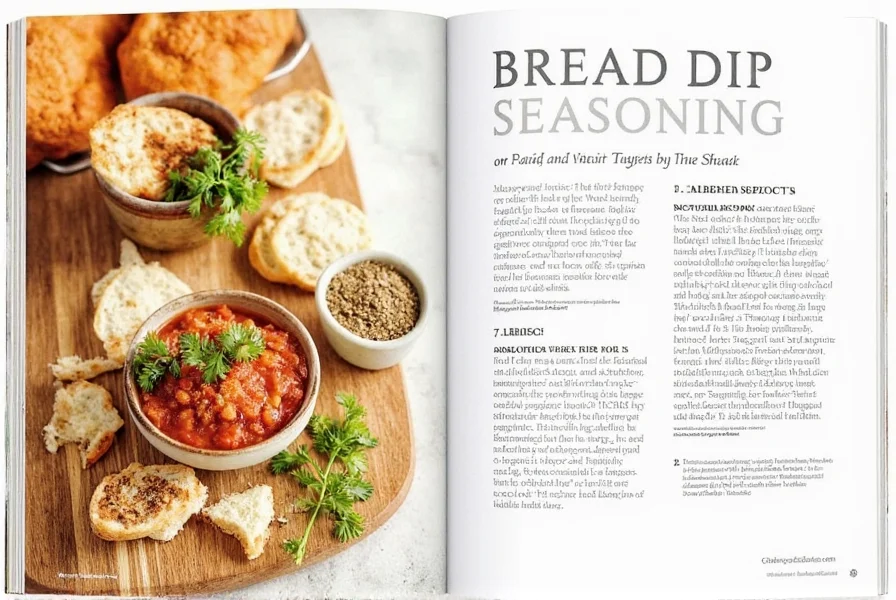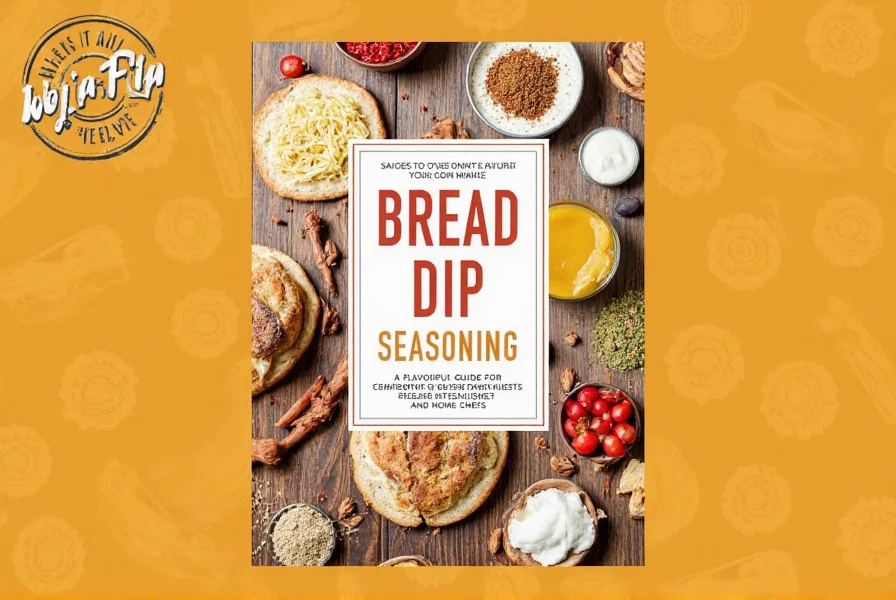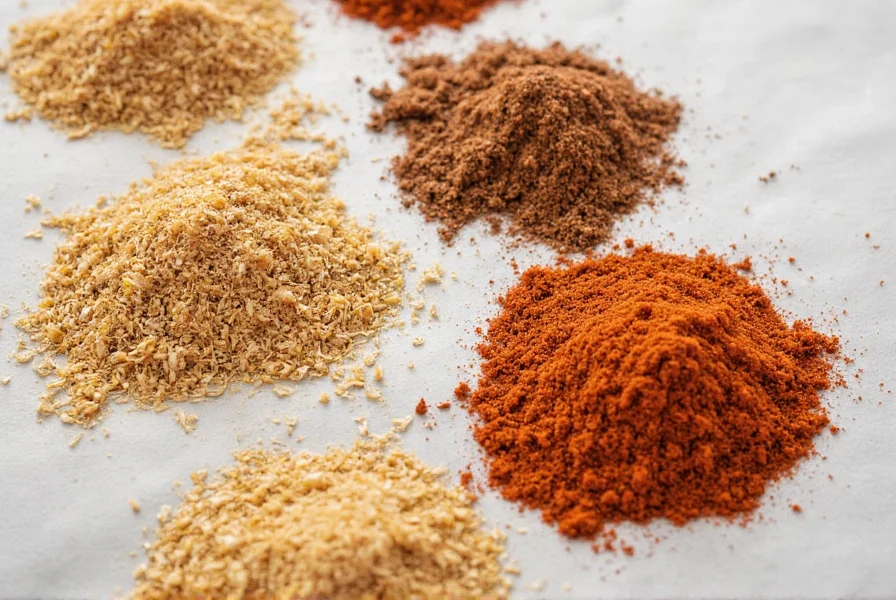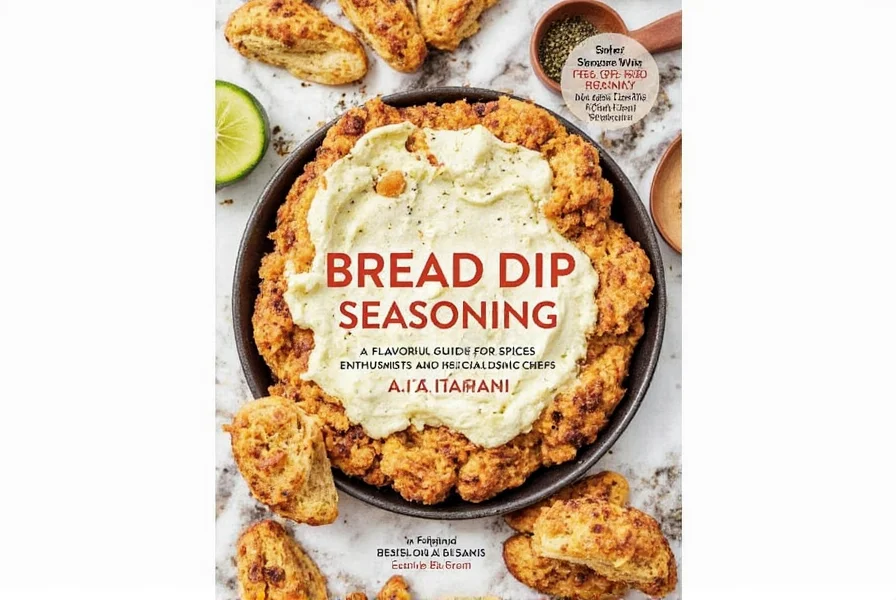Table of Contents
Easy Homemade Bread Dip Seasoning Recipe
Bread dip seasoning is a simple, versatile spice blend that transforms plain bread into a gourmet experience. Making it at home ensures freshness, avoids additives, and allows full customization. Here's the foolproof recipe:
- Yield: 1/4 cup (enough for 8-10 servings)
- Prep time: 5 minutes
- Ingredients:
- 2 tablespoons garlic powder
- 1 tablespoon onion powder
- 1 tablespoon smoked paprika
- 1 tablespoon dried oregano
- 1 teaspoon dried thyme
- 1 teaspoon sea salt
- 1/2 teaspoon black pepper
- Optional: 1/2 teaspoon lemon zest for brightness
Instructions:
- Combine all ingredients in a small bowl.
- Whisk thoroughly until evenly mixed.
- Transfer to an airtight container. Store in a cool, dry place for up to 6 months.

Top 5 Practical Tips for Using Bread Dip Seasoning
Maximize your seasoning with these expert techniques:
- Butter or oil base: Mix 2 tablespoons seasoning with 3 tablespoons melted butter or extra-virgin olive oil for perfect adhesion. Warm the oil slightly to release aromatic compounds.
- Customize intensity: For a stronger flavor, add 1/2 teaspoon cayenne or 1 teaspoon nutritional yeast. For a lighter version, reduce salt by half.
- Pairing synergy: Use garlic-onion blends with tomato-based dips; smoky paprika with hummus; lemon-herb with seafood dips.
- Storage hack: Add a silica gel packet to your container to prevent clumping. Shake before each use.
- Beyond bread: Sprinkle on roasted potatoes, grilled shrimp, or popcorn. Use as a rub for chicken before baking.

In-Depth Explanation of Key Ingredients
Each component serves a specific purpose in creating balanced flavor:
- Garlic powder: Provides pungent depth without raw bite. Use dehydrated flakes for stronger flavor.
- Smoked paprika: Adds complexity beyond regular paprika. Choose Hungarian for sweetness or Spanish for smokiness.
- Dried oregano: Offers earthy notes. Opt for Greek oregano for higher oil content and stronger aroma.
- Sea salt: Enhances all flavors. Avoid iodized salt which can impart metallic taste.
- Lemon zest: Brightens the blend. Use organic lemons to avoid wax coatings.
Comparison Table: Types of Bread Dip Seasoning
| Seasoning Type | Key Ingredients | Flavor Profile | Best For |
|---|---|---|---|
| Classic Garlic & Onion | Garlic, onion, salt, pepper | Savory, bold | Plain bread, dips, appetizers |
| Herb & Garlic | Garlic, oregano, thyme, salt | Earthy, aromatic | Crusty bread, soups, stews |
| Smoky Paprika | Paprika, garlic, onion, chili | Smoky, slightly spicy | Grilled meats, roasted veggies |
| Spicy BBQ | Cayenne, paprika, garlic, brown sugar | Sweet and spicy | BBQ dishes, pizza crusts |
| Herb & Lemon | Lemon zest, thyme, oregano, salt | Zesty, bright | White bread, seafood, salads |

Frequently Asked Questions About Bread Dip Seasoning
What is bread dip seasoning typically made of?
Bread dip seasoning is usually a blend of garlic powder, onion powder, salt, pepper, and dried herbs like oregano, thyme, or basil. Some variations may include paprika, citrus zest, or other spices depending on the flavor profile.
How do I use bread dip seasoning?
The most common way is to mix it with melted butter or olive oil, then dip bread into the seasoned oil. You can also sprinkle it directly on bread before toasting, use it as a rub for meats, or add it to other dishes for extra flavor.
Can I make my own bread dip seasoning at home?
Absolutely! A basic recipe includes 2 tablespoons garlic powder, 1 tablespoon onion powder, 1 tablespoon dried oregano, 1 tablespoon dried basil, 1 tablespoon salt, and 1 teaspoon black pepper. Mix these together and store in an airtight container.
How long does homemade bread dip seasoning last?
When stored properly in an airtight container away from heat and moisture, homemade bread dip seasoning can last 6-12 months. Commercial blends often have a similar shelf life, but always check the expiration date on the package.
Is bread dip seasoning gluten-free?
Most basic bread dip seasonings are naturally gluten-free since they're made from spices and herbs. However, always check the label if you have gluten sensitivity, as some commercial blends might contain additives or be processed in facilities that handle wheat.
What's the difference between bread dip seasoning and Italian seasoning?
While both contain similar herbs, bread dip seasoning typically has higher concentrations of garlic and onion powder and is specifically formulated to complement bread and dipping oils. Italian seasoning is more herb-focused with a different balance of ingredients.
Conclusion
Bread dip seasoning is more than just a simple spice mix—it's a flavor enhancer that can transform ordinary bread into something extraordinary. With its wide range of uses, customizable nature, and ability to complement various dishes, it's no wonder why it has become a favorite among both amateurs and professionals alike. Whether you're using it for a casual snack or a fancy dinner, this seasoning is a must-have in any kitchen.
Remember, the key to mastering bread dip seasoning lies in understanding its ingredients, experimenting with different applications, and finding the right blend that suits your taste. So next time you reach for a slice of bread, don't forget to give it a little sprinkle of flavor magic!











 浙公网安备
33010002000092号
浙公网安备
33010002000092号 浙B2-20120091-4
浙B2-20120091-4